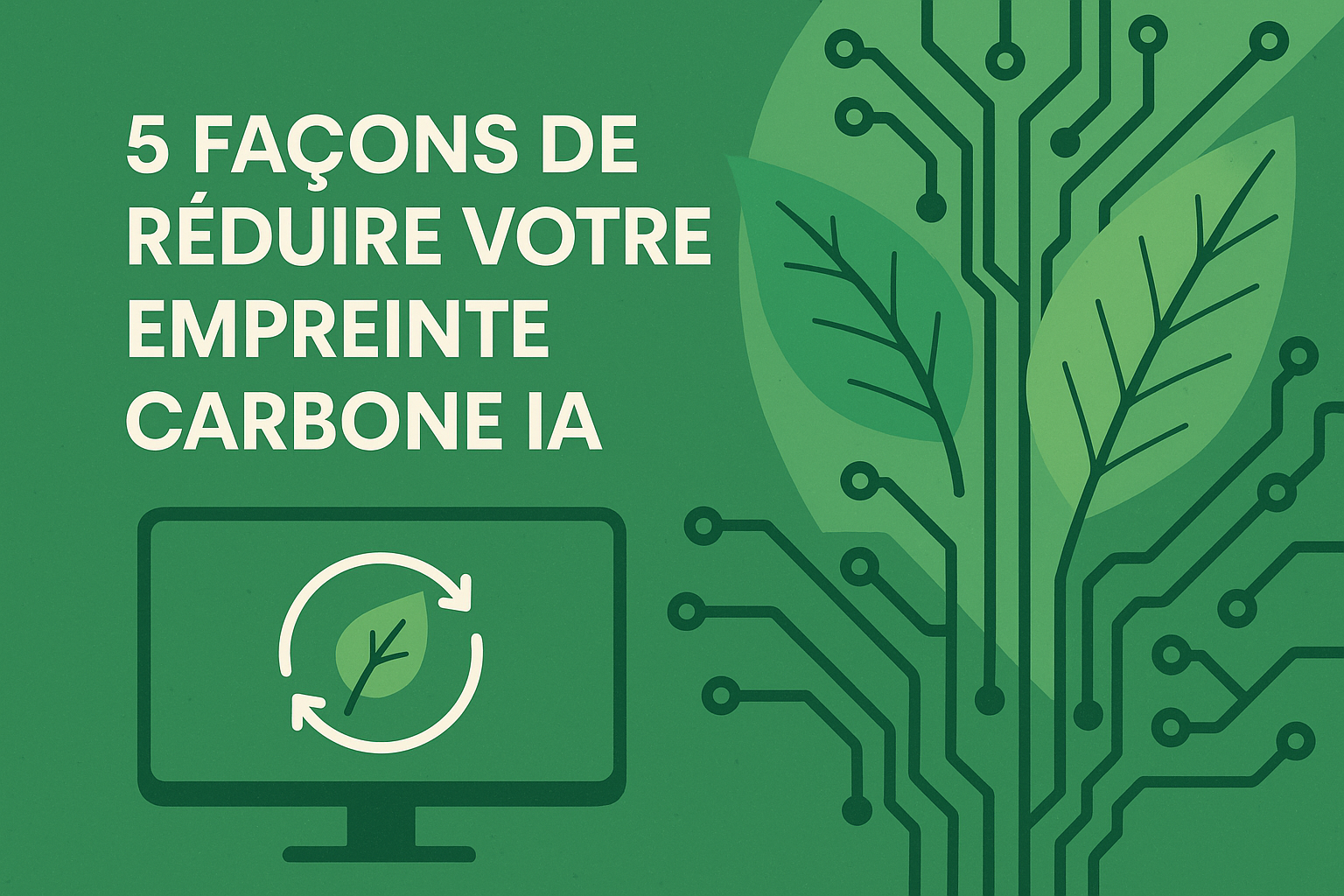5 Ways to Reduce Your AI Carbon Footprint
Discover actionable strategies to make your AI usage more sustainable and environmentally friendly.

Understanding AI’s Environmental Impact
Before we dive into solutions, let’s understand the problem. AI models consume significant computational resources, which translate to energy consumption and carbon emissions. But there’s good news: you can make a difference.
1. Choose Efficient Models
Not every task requires the latest, most powerful AI model. Here’s how to choose wisely:
Match Model to Task
- Simple queries: Use lighter models (GPT-3.5, smaller alternatives)
- Complex reasoning: Reserve powerful models for when you truly need them
- Batch processing: Group similar tasks to optimize model usage
Use Smart Routing Platforms
Platforms like Ethica automatically route your prompts to the most efficient model, saving tokens and reducing emissions without requiring you to think about it.
2. Optimize Your Prompts
Better prompts mean fewer iterations and less token consumption:
❌ Bad: "Tell me everything about climate change"
✅ Good: "Summarize the top 3 causes of climate change in 100 words"Prompt Optimization Tips:
- Be specific and concise
- Set clear parameters (word count, format)
- Use system messages efficiently
- Avoid unnecessary context
3. Cache and Reuse Results
Don’t regenerate what you already have:
- Save common responses: Store frequently used AI outputs
- Build a knowledge base: Reduce redundant API calls
- Share within teams: Avoid multiple people asking the same questions
4. Monitor Your Usage
You can’t improve what you don’t measure:
Track These Metrics:
- Monthly token consumption
- Model usage patterns
- Cost per interaction
- Estimated carbon footprint
Tools like Ethica provide detailed analytics to help you understand and optimize your AI usage.
5. Support Compensat ion Initiatives
Even with optimization, some AI usage is necessary. Support platforms that:
- Offset carbon emissions through verified projects
- Invest in renewable energy for data centers
- Fund reforestation and environmental restoration
- Promote sustainable practices across the industry
The Ethica Approach
At Ethica, we combine all these strategies into one seamless platform:
| Feature | Benefit |
|---|---|
| Smart Routing | Automatic model optimization |
| Token Analytics | Real-time usage monitoring |
| Carbon Tracking | Transparent environmental impact |
| Compensation Program | Active environmental restoration |
Real-World Impact
Let’s put this in perspective. If a company using 1 million tokens per month switches to optimized routing:
- Tokens Saved: 600,000 per month
- CO2 Reduced: ~720 kg per year
- Trees Equivalent: ~36 trees planted per year
- Cost Savings: 40-60% reduction in AI expenses
Taking Action Today
Making a difference doesn’t require perfection—it requires action:
- Audit your current AI usage
- Switch to ethical platforms like Ethica
- Educate your team on prompt optimization
- Monitor and celebrate your progress
- Share your success to inspire others
Conclusion
Reducing your AI carbon footprint isn’t just about being environmentally conscious—it’s about building a sustainable future for technology. Every small change adds up, and together, we can make AI a force for good.
Ready to optimize your AI usage? Contact Ethica to learn how we can help you reduce your carbon footprint while improving efficiency.
Have questions about AI sustainability? Follow us on Twitter and LinkedIn for more insights.